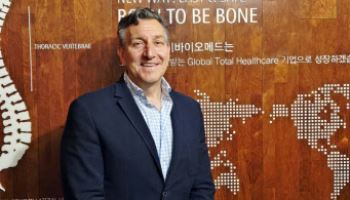Vilnius: From Unknown to Life Sciences Powerhouse
[Vilnius (Lithuania) = Edaily Reporter Lim Jeong-yeo] Vilnius, the capital city of Lithuania in Europe, is not a location that easily comes to mind for South Koreans, whether for travel or business. The trip from Incheon to Vilnius takes about 15 hours to reach the transit point of Helsinki, Finland, followed by another two to Vilnius. The journey could be shorter if not for the prolonged Russian war against Ukraine, which forces planes to bypass restricted airspace.
Though a path less traveled, upon arrival in Vilnius one cannot help but be amazed at the unique balance this deeply historic city strikes between the preservation of tradition and the advancement of technology. English proficiency was widespread, and the city and its inhabitants were accommodating and welcoming. Cash usage was rare, with nearly every monetary transaction handled via digital devices.
Life Sciences Baltics 2025
Lithuania’s population is about one eighteenth that of South Korea, and its GDP about one nineteenth, yet these smaller scales do not diminish the country’s growing significance in life sciences.
Biotechnology and life sciences are priority industries in Lithuania, and talents and achievements in the area will be highlighted at the upcoming Life Sciences Baltics 2025, to be held Sept. 17~18 at Litexpo in Vilnius. Launched in 2012, the event is the Baltics’ premier biotech conference, held biennially except during the COVID-19 pandemic.
Biotechnology contributes 2.2% of Lithuania’s GDP. Eighty-six percent of Lithuanian-made pharmaceuticals and healthcare products are exported to over 100 countries. Within the OECD, Lithuania ranks third in value-added output relative to biotech R&D investment.
The nation’s key focus areas include personalized medicine (cell and gene therapies), healthcare data infrastructure (AI-driven healthcare solutions), and biomanufacturing (CDMO, 3D bioprinting).
The ecosystem for next-generation technology development is robust. A high proportion of STEM graduates focus on biotech and biomedical fields, while the government supports R&D and streamlines regulatory procedures.
Lithuania’s Green Corridor program stands out as a national strategy to attract large-scale investment, offering simplified administrative processes, rapid approvals, tax incentives, and tailored support for strategic projects. Incentives include up to 20 years of zero corporate tax and faster decision-making within public institutions.
A key element of the program is assigning a dedicated coordinator to ensure smooth collaboration between investors and institutions. Coordinators help accelerate permits, simplify immigration procedures, and design customized degree courses or training programs linked to investment projects. This significantly improves the investment environment and accelerates the attraction of strategic projects.
Potential partnerships with South Korea
A walk through Vilnius indicated that Lithuania holds a positive impression of South Korea and shows a deeper-than-expected understanding of Korean culture. This was evident in Vilnius bookstores, where translated Korean literature ranging from classics to new releases was widely available. Titles included Keum-suk Gendry-Kim’s graphic novel Naked Tree, Cho Kyung-ran’s Blowfish, Cho Nam-joo’s Kim Jiyoung, Born 1982, Min Jin Lee’s Pachinko, Lee Mi-ye’s Dallergut Dream Department Store, Jin Dal-yong’s Understanding the Korean Wave, and Hwang Bo-reum’s Welcome to the Hyunam-dong Bookshop.
The interest may well be reciprocated. Although not many South Koreans are aware of the level of scientific advancement in Lithuania, some see opportunities for partnership between the two countries.
The CEO of a South Korean medical AI company told Edaily, “Lithuania is a science and technology powerhouse specializing in semiconductor lasers. Though small, the country goes all in on select technologies. Perhaps if Lithuania works with South Korea, it may benefit from our work-driven culture.”
A stem cell therapy company CEO added, “Lithuania, with its strong English-speaking environment and excellent hospital and workforce infrastructure, may be a prime location to obtain Caucasian patient data for novel drug developers.”
A wearable medical device company CEO remarked, “Lithuania could serve as a base for European clinical trials and early market proof-of-concept (PoC). R&D there is more advanced than people think, and the government is proactive in securing global partnerships.”
Though a path less traveled, upon arrival in Vilnius one cannot help but be amazed at the unique balance this deeply historic city strikes between the preservation of tradition and the advancement of technology. English proficiency was widespread, and the city and its inhabitants were accommodating and welcoming. Cash usage was rare, with nearly every monetary transaction handled via digital devices.
|
Lithuania’s population is about one eighteenth that of South Korea, and its GDP about one nineteenth, yet these smaller scales do not diminish the country’s growing significance in life sciences.
Biotechnology and life sciences are priority industries in Lithuania, and talents and achievements in the area will be highlighted at the upcoming Life Sciences Baltics 2025, to be held Sept. 17~18 at Litexpo in Vilnius. Launched in 2012, the event is the Baltics’ premier biotech conference, held biennially except during the COVID-19 pandemic.
Biotechnology contributes 2.2% of Lithuania’s GDP. Eighty-six percent of Lithuanian-made pharmaceuticals and healthcare products are exported to over 100 countries. Within the OECD, Lithuania ranks third in value-added output relative to biotech R&D investment.
The nation’s key focus areas include personalized medicine (cell and gene therapies), healthcare data infrastructure (AI-driven healthcare solutions), and biomanufacturing (CDMO, 3D bioprinting).
The ecosystem for next-generation technology development is robust. A high proportion of STEM graduates focus on biotech and biomedical fields, while the government supports R&D and streamlines regulatory procedures.
Lithuania’s Green Corridor program stands out as a national strategy to attract large-scale investment, offering simplified administrative processes, rapid approvals, tax incentives, and tailored support for strategic projects. Incentives include up to 20 years of zero corporate tax and faster decision-making within public institutions.
A key element of the program is assigning a dedicated coordinator to ensure smooth collaboration between investors and institutions. Coordinators help accelerate permits, simplify immigration procedures, and design customized degree courses or training programs linked to investment projects. This significantly improves the investment environment and accelerates the attraction of strategic projects.
|
A walk through Vilnius indicated that Lithuania holds a positive impression of South Korea and shows a deeper-than-expected understanding of Korean culture. This was evident in Vilnius bookstores, where translated Korean literature ranging from classics to new releases was widely available. Titles included Keum-suk Gendry-Kim’s graphic novel Naked Tree, Cho Kyung-ran’s Blowfish, Cho Nam-joo’s Kim Jiyoung, Born 1982, Min Jin Lee’s Pachinko, Lee Mi-ye’s Dallergut Dream Department Store, Jin Dal-yong’s Understanding the Korean Wave, and Hwang Bo-reum’s Welcome to the Hyunam-dong Bookshop.
The interest may well be reciprocated. Although not many South Koreans are aware of the level of scientific advancement in Lithuania, some see opportunities for partnership between the two countries.
The CEO of a South Korean medical AI company told Edaily, “Lithuania is a science and technology powerhouse specializing in semiconductor lasers. Though small, the country goes all in on select technologies. Perhaps if Lithuania works with South Korea, it may benefit from our work-driven culture.”
A stem cell therapy company CEO added, “Lithuania, with its strong English-speaking environment and excellent hospital and workforce infrastructure, may be a prime location to obtain Caucasian patient data for novel drug developers.”
A wearable medical device company CEO remarked, “Lithuania could serve as a base for European clinical trials and early market proof-of-concept (PoC). R&D there is more advanced than people think, and the government is proactive in securing global partnerships.”





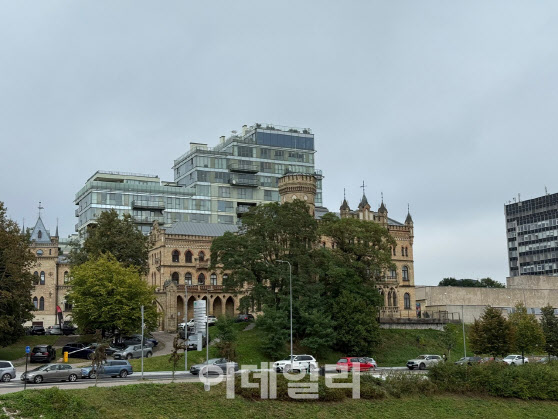
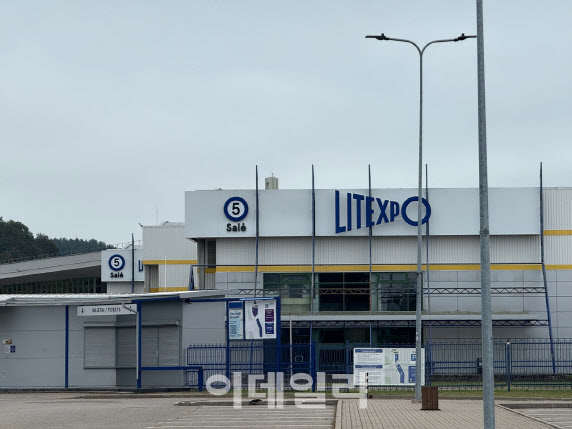


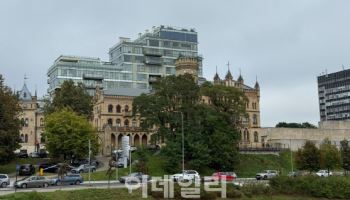
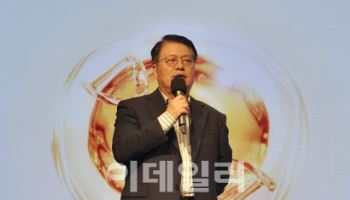
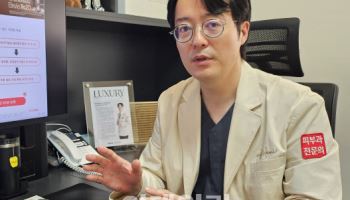
![‘제2의 리쥬란 찾기’에 스킨부스터株 ‘들썩’[바이오 맥짚기]](https://image.edaily.co.kr/images/vision/files/NP/S/2025/09/PS25091600329b.jpg)
